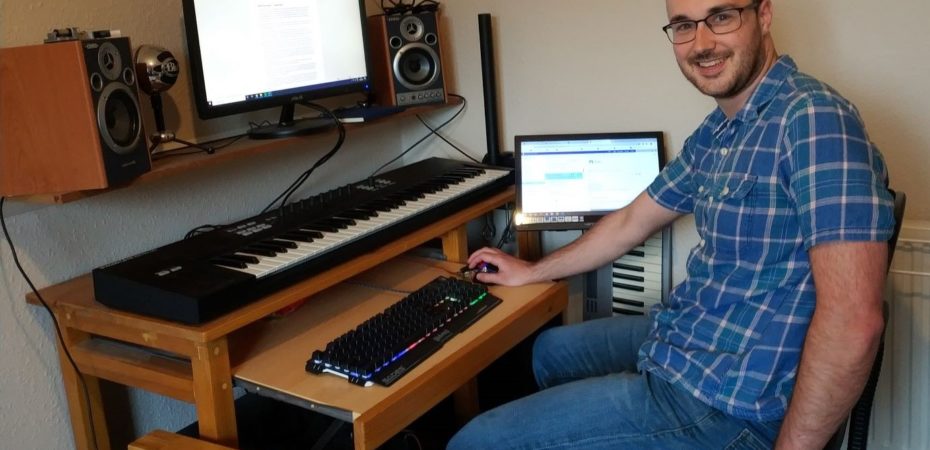In the latest of our posts on working from home, Eddie Pennington compares his secondments pre- and post-lockdown and finds plenty to be positive about.
My first 18 months on the nucleargraduates scheme have been defined by travel. Every week seemed to bring a new conference or training zone, anywhere from London to Cumbria. Since graduating from Edinburgh in 2017 my nucleargraduates secondments have seen me based in two varied and interesting organisations: first at the Nuclear Decommissioning Authority, where I worked on cost estimation for large projects, and then at the UK Space Agency doing technology road mapping for the nuclear sector.
All this made the transition to an era of social distancing, travel restrictions and endless Zoom calls a somewhat jarring one. It also made the change to my latest role at the UK Atomic Energy Authority the most challenging yet.
Fewer “first-day rituals”
Starting a new secondment in the shadow of COVID-19 has presented many new difficulties. For starters many of the normal first-day rituals common to the start of any role –setting up at a desk, site tours and so on – were simply not possible. Perhaps the greatest challenge through is not being able to meet your new colleagues in person, making it hard to feel like you’re really part of a team.
Thankfully there are workarounds to all of the above. The wonders of modern technology mean I’ve been able to conduct the vast majority of office-based work as normal from my own computer. As with many others, I’ve also become very accustomed to video meetings. A few weeks into my placement, changing my Zoom background and sharing my screen are very much second nature.
The trickier part has been the often less-appreciated aspect of a placement: integrating into the team. I was very lucky that the team I’m based in has hosted daily catch up meetings for non-work-related chat. This has been a great way to get to know colleagues better and has been a great help in this area. It’s definitely worth taking the time to take part in these catch-ups where possible, I really can’t recommend it enough.
Overall, starting remotely has worked a lot better than I would have anticipated in my earlier secondments. That said, there have certainly been learning points.
Be proactive – reach out to people
The first thing I’d say is be proactive and don’t be afraid to reach out to people! The last few months have been a period of adjustment for everyone so if you’re having difficulties with something, you’re likely not alone. It’s very likely your colleagues will be able to help out and save banging your head against a brick wall over something simple.
It’s also worth taking the time to set out your work area in a way that suits you. The ideal work space will vary depending on working styles and personal preference so do what’s best for you. I’ve found that setting up a dedicated work area with adequate desk space and minimal distractions has been a great help in getting into a healthy mindset when working. A second screen has also been a lifesaver…
Lastly, don’t forget that Zoom fatigue is very much a thing so don’t let yourself get worn out by back-to-back video conferences. Don’t feel guilty for taking the time to get away from the screen to read a book, go out for a walk or just chill out for a few minutes. I’ve found that trying to concentrate for too long and risking burning out is actually less productive than taking more regular short breaks between more focused bursts of productivity.
If my experience has taught me anything it’s that, despite all the challenges, with a flexible mindset and a bit of perseverance you can still make the most of virtual working.
Great advice there on adapting to the challenges of this way of working. More to follow….
If you’re looking for graduate jobs just now watch out for our Graduate Jobs Fair Online, coming soon!

